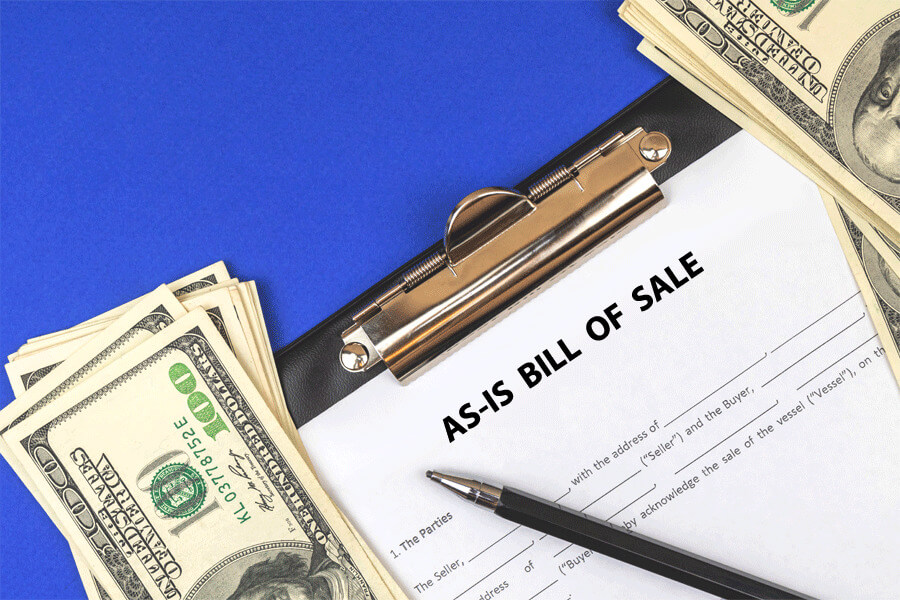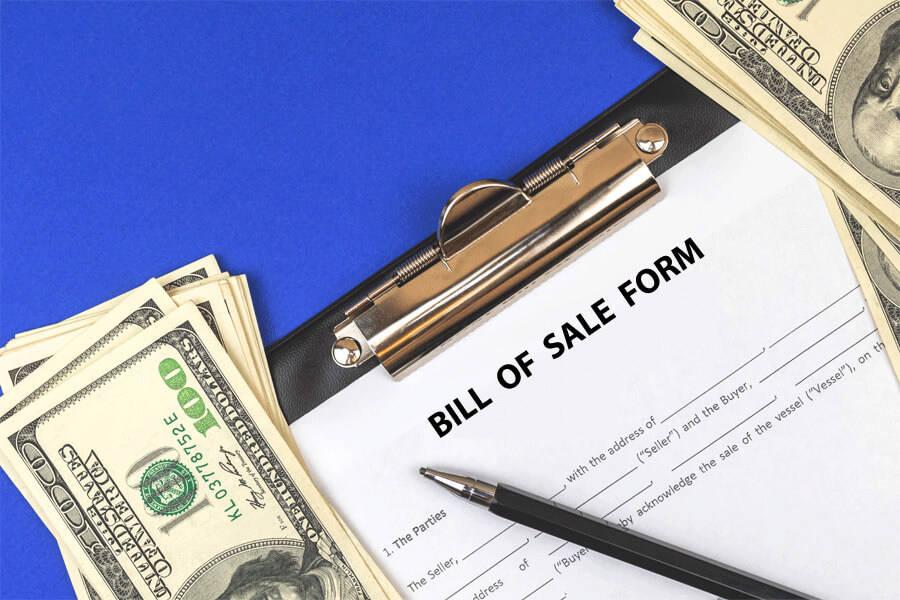A Mobile Home Bill of Sale is a form or document that indicates the legal sale transaction of a mobile (manufactured) home from the seller (old owner) to the buyer (new owner) of the home.
This contract contains information such as the sale transaction details, buyer’s information, seller’s information, home details, and the agreed-upon price. This bill of sale is only signed after the sale transaction has been executed and completed between the seller and the buyer of the home.
It validates the sale of the mobile home, acts as proof of the exchange of cash, and protects the seller and buyer from any future liability risks.
The buyer may also provide a security deposit to the seller as the inspection process continues before the bill of sale form is signed. It also requires notary acknowledgment at the end to make it complete and valid.
Free Bill of Sale Forms
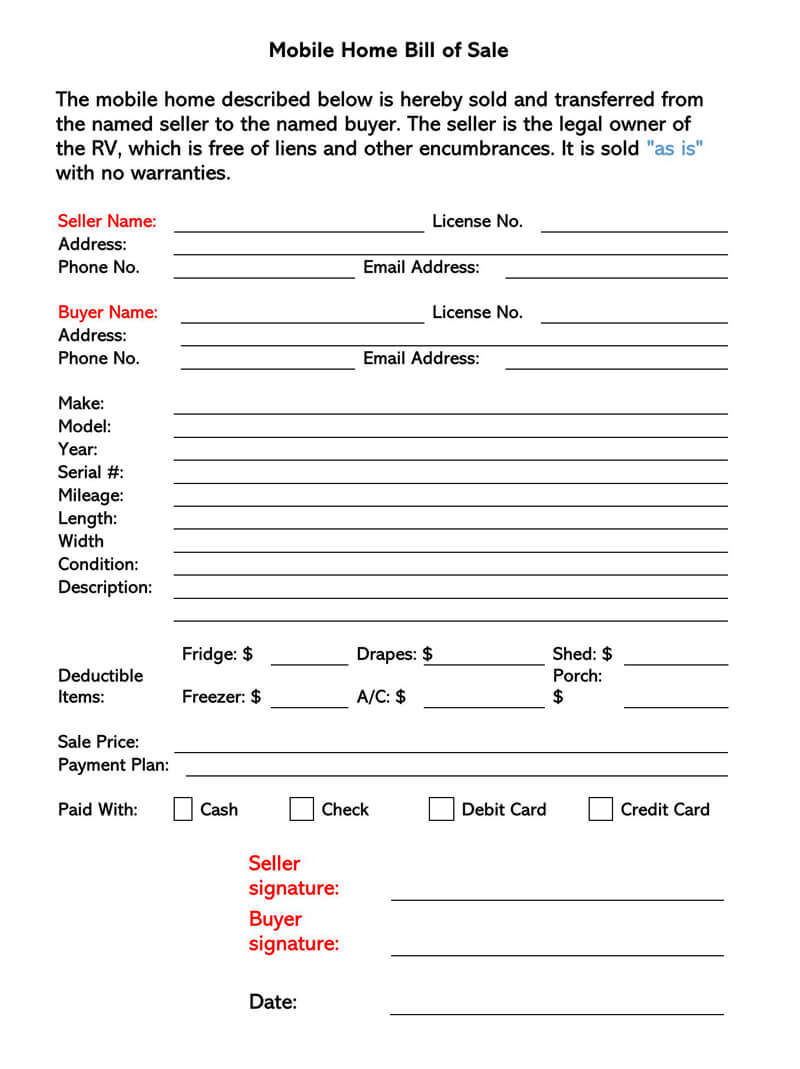
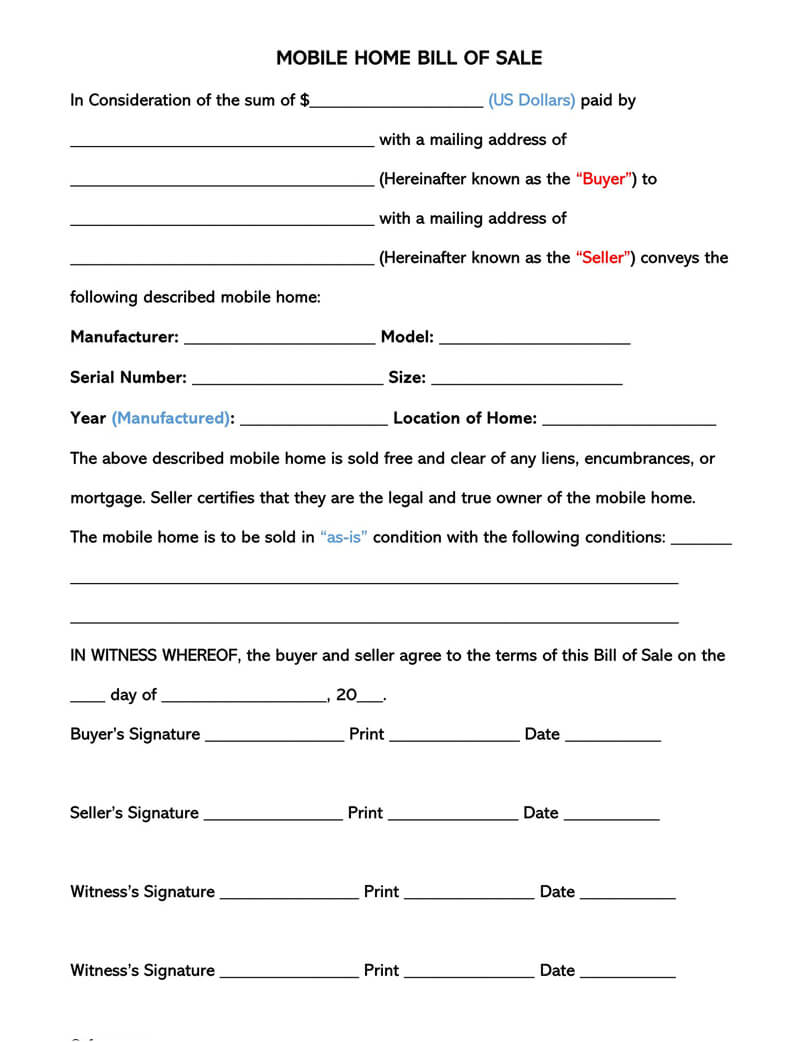
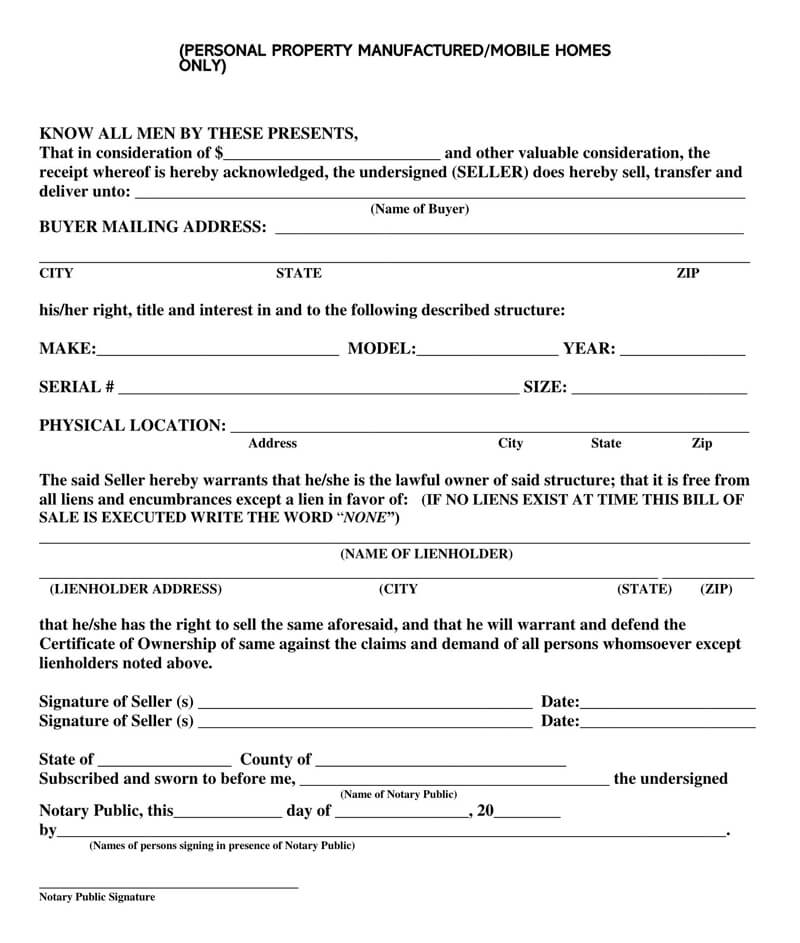
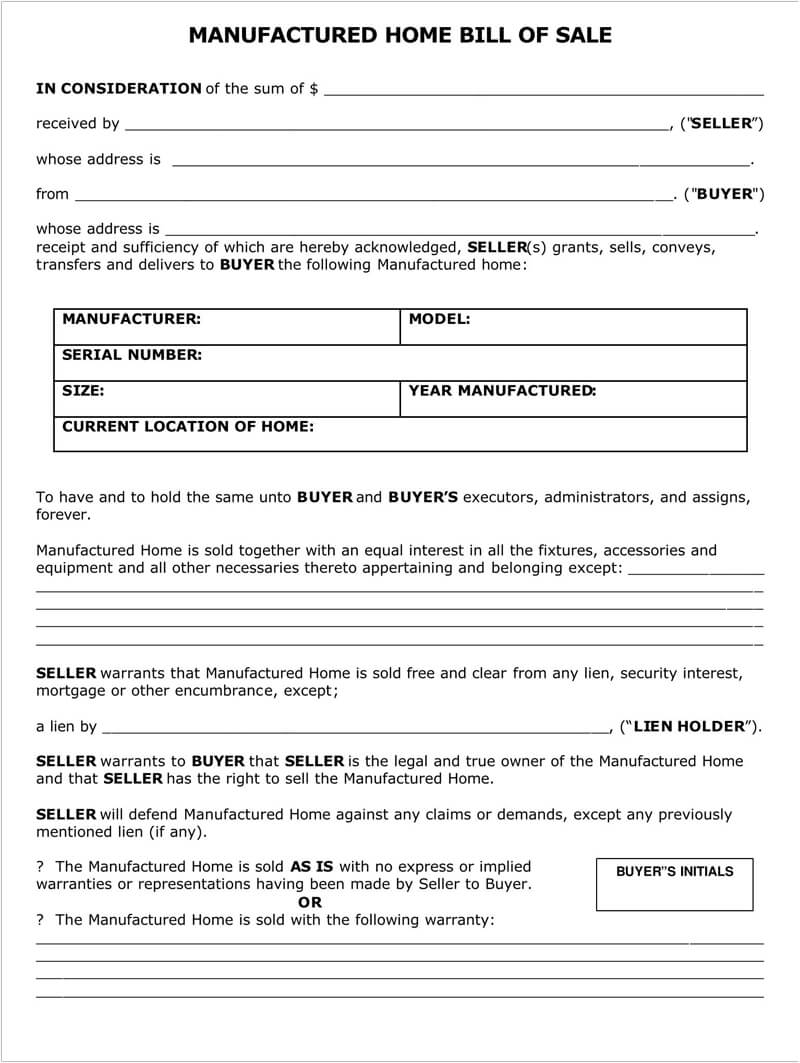
When is the Mobile Home Bill of Sale Used?
A mobile home bill of sale form is used in the following scenarios:
- Purchasing a New Mobile Home: As stated, this document is extensively used when purchasing a new mobile home. It verifies that the property has changed hands from a seller (original owner) to a buyer (new owner). That is because it contains all the relevant transaction details.
- Settling any Disputes: In the unlikely event that any disputes arise out of the sale of any property, this document may come in to settle them. The document finds extensive use in courtrooms, as the jury relies a lot on it to offer clarifications that may be necessary.
- Record-keeping: All transactions have to be recorded and kept safely for the sake of facilitating any future references. Yet again, this document comes in to solve that very issue. Given that it contains all the details about the transactions involved, it is a good one to rely on.
Pre-Buying Considerations
Before purchasing a mobile home, there are certain things you have to take care of. Below are some of those factors and things you have to keep in mind:
- Building Codes and Standards: In the 1970s, the Federal Government instituted the Housing and Urban Development Building Standards. These override any state or county laws. It is therefore necessary that the home in which you are interested conform to this standard. You do not want to ruffle feathers unnecessarily with the various tiers of government.
- Vehicle Identification Number (VIN): A ‘vehicle identification number’ is to a mobile home what a birth certificate is to you. It uniquely distinguishes one home from another. That is because it contains such pertinent pieces of information as the state of manufacture, serial number, manufacturer, and registration number, among others. Be sure these pieces of information tally with the official government records prior to purchase.
- Used vs. New Homes: Would you want to purchase the new or the used one? Newer homes are definitely better for you. They contain the latest features, have longer lifespans, and are more reliable. But they have a catch. They are very expensive to come by. It is up to you to decide whether they are worth fighting for.
- Shipping and Delivery: Purchasing a mobile home is one thing. Transporting the same to your locale or area of desired use is yet another thing altogether. For this reason, you have to take care of the shipping and delivery expenses as well. While sourcing for your vehicle, be sure to estimate just how much it may cost to bring to your location.
- Costs Implications: Lastly, of course, you have to factor in the cost implications. You have to set a budget range. Then, look for that one whose value falls within the range you will have delineated. Do not shy away from negotiating. You definitely want to spend the least realistic amount of money in the process.
How to Write Mobile Home Bill of Sale
There are things that must be included in the bill of sale to make it complete for the sale. These are as follows:
The parties
The basic information about the parties to be mentioned is:
- Seller’s details: The seller’s details that must be included are the seller’s name and mailing address.
- Buyer’s details: The buyer’s information needed is the buyer’s name and the buyer’s mailing address.
Purchase details
When it comes to the purchase details, the date when the agreement is completed and the agreed-upon amount (price) should be well indicated.
Mobile home information
In this section, there are certain details that should be included. The information that is required includes:
- Location of the mobile home
- The model
- The manufacturer
- The manufacturing year
- The size of the home
- Mobile home serial number
Signatures
The signatures required include the buyer’s signature, the seller’s signature, and the signatures of the witnesses present during the signing. The printed names of these participants must also be included. Finally, the signature date is also essential in this section.
Notarization
For proper authentication of the document, notarization is required at the end. This includes the signature of the notary public and a seal at the end of the document.
Related: Free Bill of Sale Forms
Conclusion
The bill of sale acts as proof or evidence of the sale transaction of a mobile home between the seller (the old owner) and the buyer (the new owner). It includes the parties’ details, the information surrounding the sale, and even the agreed-upon price. It should be notarized for it to be valid.
The seller must ensure that the inspection process has been completed and that they have received the cash before both of them and the buyer signs the form. This is because it acts as evidence of the completion of the sale transaction.







